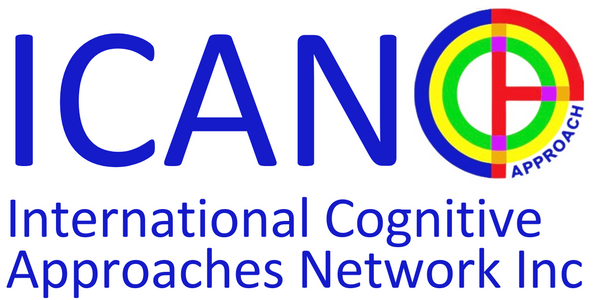Jacqui Hunt Shares a First Hand Account of Completing CO-OP II - The Basics Online Course
Share
We are thrilled to launch our blog with a wonderful first person account by Jacqui Hunt (BSc(OT), MClinSc(Disability), PhD Candidate who is a lecturer in OT at the School of Medical and Health Sciences, Edith Cowan University, Australia.
I have worked as an occupational therapist (predominantly in paediatrics) for 25 years and for the past 7-8 years I have worked in a combined academic and clinical role. Over the years I have heard about CO-OP and read the text and many CO-OP studies in the literature. I’ve always thought that CO-OP would be a good addition to my therapy toolkit and at times, I have loosely used the Goal, Plan Do, Check approach with children with Acquired Brain Injury and Developmental Co-ordination Disorder. However, I have never complete the CO-OP course because I have not had the the opportunity to attend the in person training. I was all set to attend training locally when COVID-19 shut down all face to face workshops. So, I took the opportunity to try the online CO-OP course and I have not looked back!
I found the course to be easy to follow and for me, there were very many ‘lightbulb’ moments. As a clinician and academic with a strong background in neuroscience I was very surprised to find that the CO-OP Approach has so many of the elements that I teach to students re: enhancing neuroplasticity. Prior to the course, I thought that CO-OP addressed specificity but though it unlikely to promote novelty. I did not realize that a cognitive approach could still allow for fun in therapy, which I recognize is essential in therapy and evidence suggest engagement is crucial to promote changes in the brain. I had assumed several limitations to the CO-OP Approach which were quickly proved wrong. Now I see that in practice, the CO-OP Approach can have a profound effect.
As part of the online course, I was required to use the CO-OP Approach to someone to teach them a new skill. I initially struggled with who to choose and what skill to select. Then, rather fortuitously, and with perfect timing, I received a notification from my son’s high school - immediately I knew I had the perfect homework task. My son (Ollie) is bright, he is in a selective program for advanced academics in his first year of high school. At the time of my CO-OP training I received a notification from Ollie’s advanced English teacher, outlining his latest assessment results. He had received a mark that was way above the class average and scored top marks in all areas except grammar, punctuation and spelling. Ironically, Ollie had written his ‘student reflection’ as follows “i think i did pretty well but i definitely need to work Grammar/Punctuation/Spelling to improve my work” Luckily, Ollie has a great sense of humour and when I asked him if he saw the irony in his response we were both able to laugh.
For many years (including 7 years of full-time schooling) numerous different teachers and I have tried a variety of methods to improve Ollie’s writing skills, particularly increasing the correct use of capitals and punctuation. Nothing has seemed to work. So, I set about using the CO-OP Approach with Ollie and he set the goal of using correct capitalization and grammar in school writing tasks.
What was amazing about using the CO-OP Approach was how easy it was for Ollie to come up with ideas and how excited he was about trying his ideas. He got quite carried away thinking up elaborate plans to remember his strategies and so we had to come back to the simple/achievable way of implementing his plans. It seemed incredible that I did not have to ‘tell him’ the possible flaws in his plans, rather I could ask questions, allowing him to come up with solutions – CO-OP 101! Ollie quickly realized that his complex solutions might be too hard to remember.
I was blown away that Ollie engaged with a sit down and think cognitive approach – he is usually so hard to pin down and the topic/material seemed like it could be boring, not at all engaging for a young man with extremely high energy levels! But he really enjoyed it and he seemed really pleased that his opinion was the one that counted, and I wasn’t telling him what he needed to do.
The results were honestly incredible. Ollie went from generating a written paragraph with ZERO capitals to making only two mistakes in a new, self-generated paragraph – and this was within the one session. I was surprised to see him implement his plan to always do a final edit of his work and when he did, he easily picked up the two mistakes that he made meaning that the final product had NO MISTAKES! Ollie was so excited that he succeeded so quickly and with such little changes and he gave me so many examples of when he would use this new skill.
After all these years, I really think that Ollie has finally found a way of improving his written work and he is keen to DO this at school and then we can CHECK his progress again. After all of my years of clinical practice and teaching paediatric occupational therapy, I have found a new tool for my OT toolkit that is so very easy to implement across so many different caseloads and intervention settings – I cannot wait to keep trying it out and look forward to more rewarding results!
